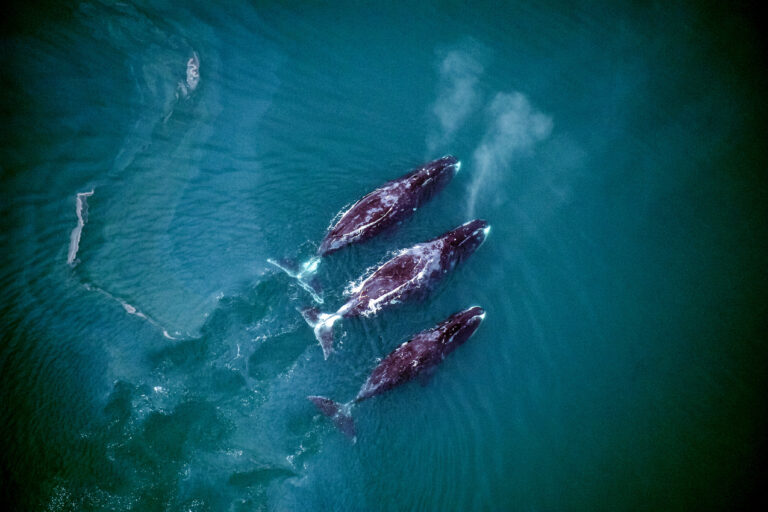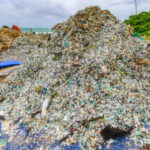Bowhead whales are endemic to the icy waters of the Arctic and prefer living in shallow waters near sea ice, filtering krill and tiny crustaceans called copepods for food. However, the Arctic is warming faster than any other region on Earth, and a recent study estimates that if this continues, then by 2100 the whales could lose up to 75% of the current area where their prime habitat now exists. Previous studies have looked at their past distributions over small geographic areas and used data from just the last 50 years or so. The new study looks at the whale’s distribution throughout its entire range, examining data going back nearly 12,000 years, from fossil evidence to whaling logbooks to more recent databases and published studies. The researchers wanted to “build a long-term baseline for this species that stretches back thousands of years so we can understand how resilient they actually will be to future climate change. Use the past as the key to the present,” study lead author Nick Freymueller, a doctoral candidate at the University of Adelaide, Australia, and the University of Copenhagen in Denmark, told Mongabay in a video call. Their modeling showed that, historically, bowheads whales (Balaena mysticetus) thrived in areas where summer sea ice covered 15-30% of the ocean surface. It also found that such bowhead habitat has been relatively stable for all of the Holocene, the last 11,700 years since the end of the last ice age. However, even under a moderate-emissions scenario, suitable bowhead habitat is expected…This article was originally published on Mongabay
Search
Recent Research
Want your Blog Article featured on our website?
Research
Featured News
How to Make Your Home More Energy-Efficient in 2026
A practical, future-ready guide for lower bills and a smaller footprint Rising energy prices and
Sustainable Break Rooms: Greening the Office Pantry
Photo by Rodeo Project Management Software on Unsplash A break room may seem like a
Solar-powered AI streetlights to fund coastal highway construction
Nigeria’s long delayed Lagos-Calabar Coastal Highway is set to be rescued by thousands of AI-driven,
Big Data Analytics Enhances Renewable Energy sector
The sun doesn’t send bills, but energy companies using renewable energy do. And to keep
From COP30 to Sri Lanka, indigenous voices shape climate & food sovereignty
COLOMBO — When Indigenous groups converged at the entrance of the U.N. Climate Change Conference
Another threat to reefs: Microplastic chemicals may harm coral reproduction
As the sliver of a new moon shines over Kāneʻohe Bay, Oʻahu, millions of tiny
A Practical Guide to Choosing the Right Organizer Bins Online
Choosing organizer bins sounds simple — until you start comparing sizes, materials, and specs online.
How Lagos traders struggle as styrofoam gradually disappears in markets
Traders have continued to count their losses about five months after the Lagos State Government





